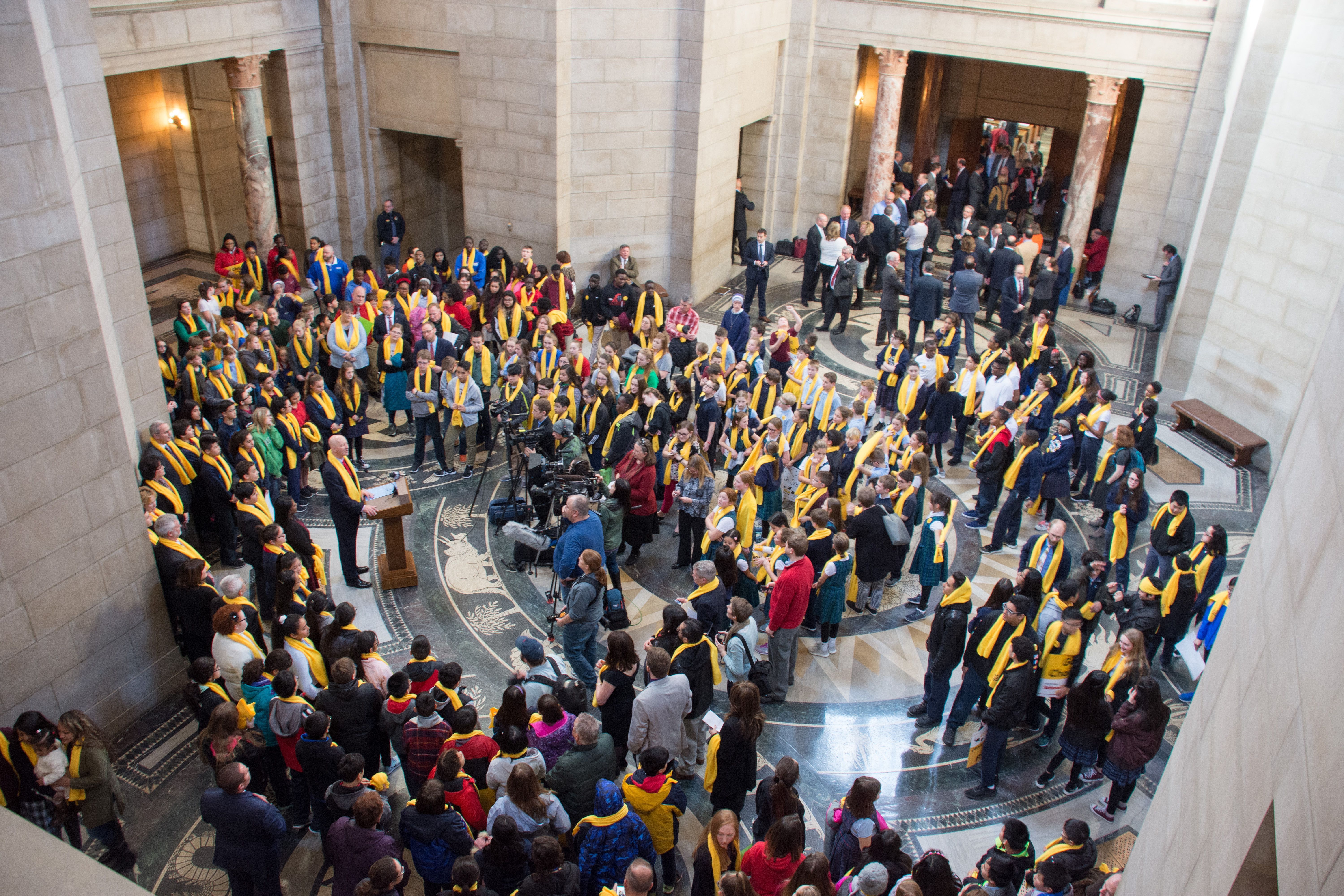
The Catholic Conference advocates for and against many bills every session in the Nebraska Legislature. Whether legislation is good or bad always depends, in large part, on the answers to questions about the human person. Who is the human person, and what does he need to flourish individually, in the family, and in community? Is the proposed legislation conducive to human flourishing, or does it damage our ability to live well together in truth, justice, and peace?
Last week, senators debated and ultimately advanced—in amended form—LB89, the “Stand With Women Act.” This bill touches on some of these foundational questions.
In its original form, LB89 would have: (i) added biologically sound definitions of “male” and “female” to state law; (ii) required public institutions to designate all group locker rooms and bathrooms for either girls/women or boys/men; and (iii) protected girls’ and women’s sports at the elementary, high school, and collegiate levels, making it state law that these sports are reserved solely for girls and women.
These protections are important, obviously, for girls’ and women’s physical safety, especially at the high school and collegiate levels. This bill is also important for ensuring basic competitive fairness and equal opportunity. We have always separated the sexes in truly competitive play. Men and women are different in many ways, not least in their physical embodiments. If we want girls and women to have true opportunities for athletic participation and achievement, they need to have their own sports teams, reserved exclusively for them.
These principles are so universally recognized that it should not be necessary to pass a law to require adherence to them. But as equal competitive opportunity and protection of sex-exclusive private spaces have been called into question and even eroded across the United States—including in at least a few school districts in Nebraska—it has become clear that the state has to have a clear policy to protect those opportunities and legitimate expectations of privacy.
LB89’s original form, as outlined above, had 32 votes in support—one short of the 33 needed to break a filibuster and advance. To get the 33rd vote, the bill had to be shorn of the provisions that would have required the exclusion of private spaces, such as locker rooms and bathrooms, from members of the opposite sex. Those provisions were eliminated and the amended bill advanced with exactly 33 votes.
Sometimes it is not clear why a member of the Legislature insists on a particular amendment to get his or her vote for a bill. This is one of those times. Why would an elected official be on-board with defining “male” and “female” and requiring the protection of girls’ and women’s sports, but against requirements protecting their intimate spaces? Whatever the reason for this—it has not been adequately explained—LB89 needed 33 votes to advance, and the “private spaces” portion had to be excised to get there. We are, of course, disappointed in the loss of one of the bill’s most important provisions. We are glad to see the advancement of the remainder of the bill.
The fundamental principle at issue surrounding this legislation is one of human persons and human flourishing. If we build laws or social customs on false ideas of what human beings are and need, human beings will suffer. One of the truths of the human condition is the truth of our embodiment. We all have bodies, and they make demands of us and others.
We live in a time of widespread confusion, anger, anxiety, and even contempt for the body. At the same time we seem to worship it. Gender ideology insists simultaneously that the body does not matter—that it tells us nothing true about ourselves—and that it is everything—that a person will never have peace unless his body is forced to conform, via drugs and surgery, with the person’s desire for something different. All other persons must furthermore be forced to conform and act as if the person’s desires—as if the person’s will—is identical with, or even creates, what is real.
This has obvious implications for both the person suffering a crisis of identity and for everyone else around him. A person cannot live well if he does not know something reliable about who he is and who others are. He cannot expect to know what he owes to himself, what others owe to him, and what he can expect from others. This is no way to live. It is also a sure recipe for conflict, frustration, and the creation of a society characterized by radical exclusion as communities and families separate themselves from other people they cannot or will not understand.
The only way to live at peace with ourselves and with others is to recognize, respect, and reconcile our wills and desires with what is real. What is real makes individual and relational demands of us. This includes the reality of the human body.

